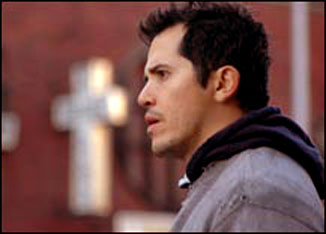It was a Saturday. October 23, 2010. A typically beautiful Indian-Summer day filled with one last touch of sun and warmth to give a little joy and comfort before heading into the shorter, colder days of late autumn and winter. It was also a day that would punch a big hole in my life leaving an unfillable void. This was the day that I lost my best friend. This was the day I lost my Dad.
As I would learn, I was but one of many who had lost their “best friend.” Dad’s passing deeply affected his family and his friends. The quick and unexpected nature of his death left us all in a deep shock. And since then we’ve been grappling with the selfish notion that this man whose life was defined by a stubborn work-ethic, generous heart, ornery pranks, and a quiet wisdom is no longer available for us.
My father was never politically connected. You weren’t going to find him in newspaper headlines. And you surely would never discover his name on some country club roster. Dad was likely to be found under the hood of your car trying to diagnose what wasn’t working. Or in front of your fuse box after finishing an electrical job at your house, apartment, garage, or business. Or you could find him at the Court Street Steak & Shake with his other friends of Bill W. helping someone trying to achieve or maintain their sobriety.
That was my father. As the nearly 700 people processed through the reception line at his funeral, so many unknown names and faces approached me with tears in their eyes stating how Dad had “saved my life.” I always knew Dad’s willingness to help a person in need. I just did not know the width and the depth of Dad’s influence.
Dad was not a hero in the overused application that’s given to celebrities, athletes, political figures and the like. After the first 25 years of my life, I finally figured things out about Dad and I began to fully appreciate him and his qualities as he did with me. I was extremely fortunate to get another 15 years with him, in our new-found understanding of each other. It was during this time that I came to see the quiet, unassuming, genuine heroic qualities of my father.
October 27th was a much colder, darker day. It may have been the weather, but it was more likely the feeling that came in knowing this was the day we’d say goodbye to Dad. The responsibility of “telling Dad’s story” fell upon my brother and me. There cannot be one person out there who’s been more affected by Dad’s passing than my younger brother, Chad. And as difficult as it had to have been, Chad stood up there without a single note. All he had were the memories and feelings in his heart and a little bit of moxy that likely came from Dad’s genetic makeup to get him through his eulogy. A little light and a little warmth to combat the cold and the dark.
Chad and I are grateful for the kind words and consolation so many have offered and for the tears shared by so many others who feel the loss of Dale. Dad left a legacy and we have a tall order in upholding that legacy.
It is my hope that you shall see my father’s sense of generosity, justice, wisdom and humor in my future posts.
Jason
UP NEXT: As I Saw Him in “An Uncommon Hero (Part 2)”










